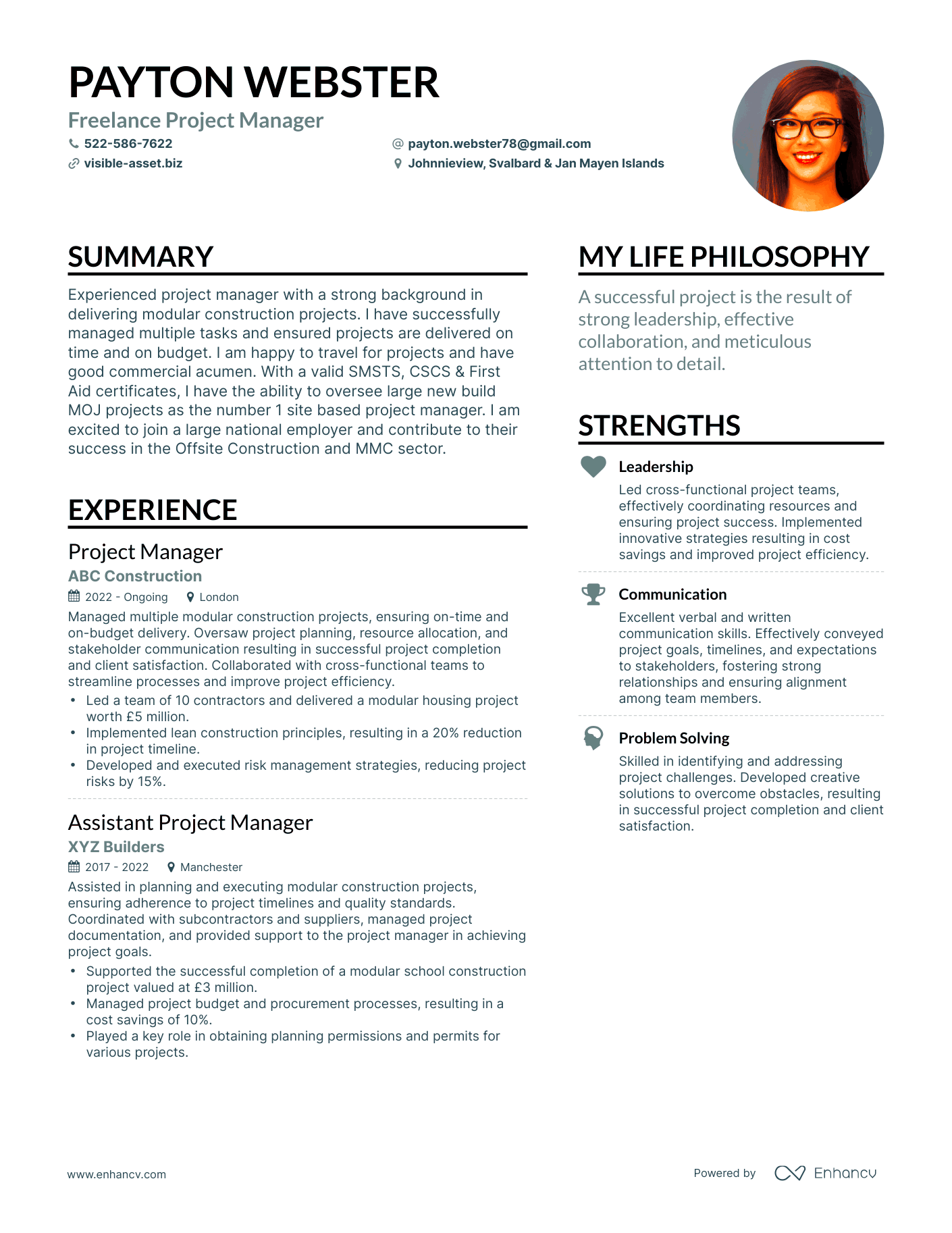A freelance project manager plays a vital role in guiding projects from start to finish. Unlike traditional project managers who work within a company, freelancers take on various projects for different clients. This flexibility allows them to work on diverse tasks across various industries. They are responsible for planning, executing, and closing projects while ensuring they meet the client's objectives and timelines.
Freelance project managers typically oversee teams, communicate with stakeholders, and manage resources efficiently. They must adapt to different project scopes, from small tasks to large initiatives. By maintaining a clear vision and keeping everything organized, they help clients achieve their goals while also maximizing their own productivity.
Skills Needed for Successful Freelance Project Management

To excel as a freelance project manager, certain skills are essential. Here are some key skills to focus on:
- Communication: Effective communication with clients and team members is crucial. You need to explain ideas clearly and listen to feedback.
- Organization: Keeping track of various tasks and deadlines requires strong organizational skills.
- Problem-solving: Challenges will arise during projects, and being able to find quick and effective solutions is important.
- Time Management: Freelancers often juggle multiple projects. Managing your time wisely helps ensure all deadlines are met.
- Negotiation: You’ll need to negotiate contracts, rates, and deliverables with clients.
- Technical Skills: Familiarity with project management tools and software can significantly enhance your efficiency.
These skills not only help you manage projects better but also build trust with your clients, leading to more work and referrals.
Also Read This: Pricing for Freelance Graphic Design Projects
Finding Your First Freelance Project Management Gig

Landing your first freelance project management gig can feel daunting, but it’s entirely achievable with the right approach. Here are some steps to get started:
- Create a Professional Profile: Use platforms like Fiverr, Upwork, or LinkedIn to create a compelling profile showcasing your skills, experience, and what you can offer to potential clients.
- Network Actively: Reach out to your existing network. Let them know you’re available for freelance work, and ask for referrals.
- Join Freelance Communities: Engage in online forums or local meetups for freelancers. Sharing your expertise can help you connect with potential clients.
- Offer Pro Bono Work: Consider taking on a project for free or at a discounted rate to build your portfolio and gain testimonials.
- Pitch Clients: Don’t hesitate to send proposals to businesses that may need project management services. Tailor each pitch to their specific needs.
By being proactive and leveraging your skills, you can secure your first project management role and start your freelance career on a strong note.
Also Read This: How to Get Orders on Fiverr Fast
Setting Your Rates as a Freelance Project Manager
One of the most important steps in your freelance journey is setting your rates. This can be a tricky task for many new freelancers. You want to ensure that your rates reflect your skills and experience while remaining competitive in the market. Here are some tips to help you determine your rates:
- Research Industry Standards: Start by looking at what other freelance project managers charge. Websites like Upwork or Fiverr can give you a good sense of the going rates.
- Consider Your Experience: If you’re just starting, it may be wise to set your rates lower to attract clients. As you gain experience and positive feedback, you can gradually increase your rates.
- Assess the Project Scope: Larger and more complex projects often justify higher rates. Be sure to factor in the time and resources required.
- Choose a Pricing Model: You can charge by the hour, per project, or offer retainer agreements. Consider what works best for you and your clients.
- Evaluate Your Costs: Don’t forget to account for your expenses, including software, tools, and taxes. Your rates should cover these costs while providing a profit.
Setting your rates can be daunting, but with careful research and consideration, you’ll find a price that works for both you and your clients.
Also Read This: How to Become a Freelance Digital Marketer Without a Degree
Building a Strong Portfolio and Resume
Your portfolio and resume are essential tools for showcasing your skills and experience. A strong portfolio demonstrates your ability to manage projects effectively, while your resume outlines your qualifications. Here’s how to create both:
- Gather Your Best Work: Include examples of projects you’ve managed, highlighting your role and the outcomes. Focus on quality over quantity.
- Use Clear Descriptions: For each project, provide a brief description, including the project’s goals, your contributions, and the results achieved.
- Incorporate Testimonials: Positive feedback from clients adds credibility to your portfolio. Ask previous clients for short quotes about your work.
- Design Your Portfolio Visually: Make your portfolio visually appealing. Use clean layouts, images, and infographics where possible to illustrate your work.
- Update Your Resume Regularly: Keep your resume current with your latest projects and skills. Tailor it for each job application to emphasize the most relevant experience.
A well-crafted portfolio and resume can set you apart from other freelancers and help you land more clients.
Also Read This: How to Use Fiverr in Nigeria
Networking and Building Client Relationships
Networking is a key part of a successful freelance career. Building strong relationships with clients can lead to repeat business and referrals. Here are some effective ways to network and foster relationships:
- Attend Industry Events: Participate in conferences, workshops, and networking events related to project management. These events provide great opportunities to meet potential clients and fellow professionals.
- Engage on Social Media: Use platforms like LinkedIn to connect with others in your field. Share relevant content and engage with posts to increase your visibility.
- Follow Up After Projects: After completing a project, check in with your clients. A simple email asking for feedback can keep the lines of communication open.
- Offer Value: Share helpful resources, tips, or insights with your clients. This shows that you care about their success and not just the transaction.
- Be Responsive and Professional: Always respond to inquiries promptly and professionally. Good communication fosters trust and can lead to more work.
By investing time in networking and nurturing client relationships, you can build a solid reputation and grow your freelance project management career.
Also Read This: How to Be Successful Selling on Fiverr
Tools and Software for Freelance Project Managers
As a freelance project manager, having the right tools and software can make a significant difference in your efficiency and productivity. With so many options available, it can be overwhelming to choose the best ones for your needs. Here are some essential tools that can help you manage projects smoothly:
- Project Management Software: Tools like Trello and Asana help you plan tasks, assign responsibilities, and track progress. They offer visual boards and lists to keep everything organized.
- Time Tracking Tools: Toggl and Harvest allow you to track time spent on different tasks. This is helpful for billing clients and improving your productivity.
- Communication Platforms: Use Slack or Microsoft Teams for real-time communication with your team and clients. These platforms help keep conversations organized and accessible.
- Document Management: Tools like Google Drive and Dropbox are great for storing and sharing files. They allow for easy collaboration and access from anywhere.
- Accounting Software: Consider using FreshBooks or QuickBooks for managing invoices and expenses. This makes tracking your finances much simpler.
Using the right tools can streamline your workflow and make your freelance project management career more successful. Experiment with different options to find what works best for you.
Also Read This: How to Make a Fiverr Pro Account
FAQ about Freelance Project Management
Here are some frequently asked questions about freelance project management that can help clarify common concerns:
- What qualifications do I need to become a freelance project manager? While formal education in project management can be beneficial, experience and a proven track record are often more important. Certifications like PMP can enhance your credibility.
- How do I find clients as a freelance project manager? Networking, online platforms, and referrals are great ways to find clients. Join freelance job boards and engage in industry groups to increase your visibility.
- How do I manage multiple projects at once? Effective time management and organization are key. Use project management tools to keep track of tasks and deadlines, and prioritize your workload.
- What should I include in my contract? Your contract should outline the scope of work, payment terms, deadlines, and any other relevant details to protect both you and your client.
- How can I ensure client satisfaction? Communicate regularly, be responsive to feedback, and deliver quality work on time. Building strong relationships leads to repeat business.
By understanding these common questions, you can navigate your freelance project management career more confidently.
Conclusion
Working as a freelance project manager can be rewarding and challenging at the same time. By understanding your role, honing your skills, and utilizing the right tools, you can successfully manage projects for various clients. Remember to set competitive rates, build a strong portfolio, and focus on networking to grow your client base. Always keep communication open and foster good relationships with your clients. As you gain experience and refine your approach, you’ll find your unique style of project management that leads to success. Embrace the journey and enjoy the flexibility that comes with freelancing!




